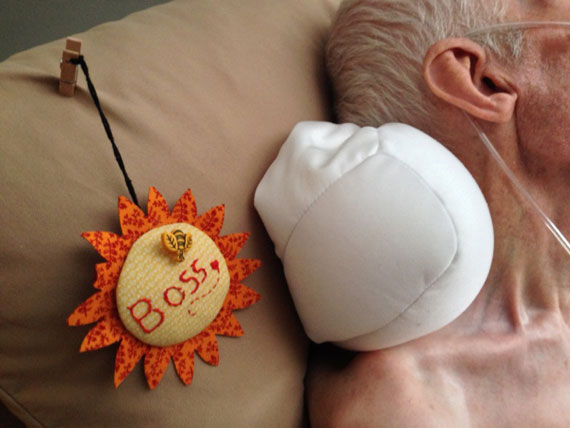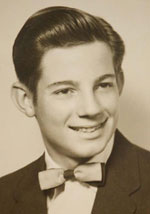Millard Bachman
by Nancy Harvey
Millard “What Do You Mean There Is No Cure?” Bachman
My Dad, Millard Bachman, had an active childhood filled with many activities from inner tubing down rivers to the dismantling many of his mother’s appliances to turn them into something else. He was the son of a minister who did not fall far from the tree. He was a good guy with a mischievous side and was a practical joker.
After graduating with a degree in aviation technology, Dad began work in the airline industry – he loved working on airplanes and to him it did not feel like work. He was a by-the-book, dedicated, reliable, solid example of what pride in your work looked like kind of guy. In the spring of 1965, Dad met his future bride who he married and stood by for 47 years. He continued with the job he loved until his retirement in 1996.
Dad started exhibiting signs of neurological changes long before we realized anything was going on. A once highly motivated guy, he had amassed a collection of projects that were started but never finished. This left my parents’ house in various states of remodel. Car restoration projects put on hold. We did not question why at the time, we just thought Dad was enjoying his retirement and had slowed to a rate that was more akin to the rest of us.
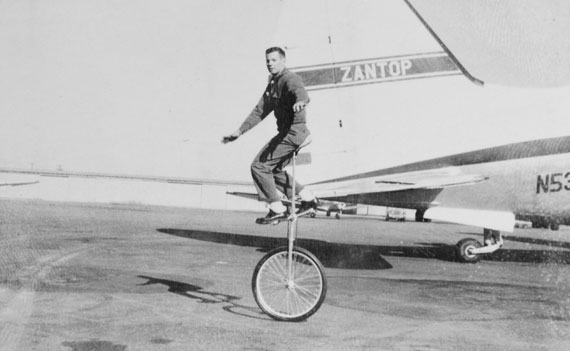
Dad was always physically active and, during this time of early decline, he remained so. He and Mom would walk 3 miles every day and both went to the gym 5-7 days a week for weight training. He was still able to do pull-ups at age 71, even as his symptoms were really starting to become evident.
In 2008, the changes in Dad’s health were significant enough that we started looking for answers. These changes included cognitive problems, slurred speech, finger dexterity and issues with balance. After an exhaustive two year search, Dad discovered that he had PSP.
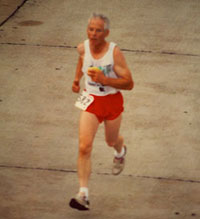 The diagnosis was difficult for him to accept because he had a very mechanically inclined way of thinking. He was accustomed to identifying a problem (normally knowing what caused it) and then fixing it. He toiled over wanting to know what in his life he had done to get PSP. With Dad’s occupation, he was regularly exposed to all kinds of hazardous chemicals, including large amounts of mercury. He even went through chelation therapy to get rid of the heavy metals in his system thinking that this was linked to his PSP. He became consumed with finding some kind of treatment and a cure.
The diagnosis was difficult for him to accept because he had a very mechanically inclined way of thinking. He was accustomed to identifying a problem (normally knowing what caused it) and then fixing it. He toiled over wanting to know what in his life he had done to get PSP. With Dad’s occupation, he was regularly exposed to all kinds of hazardous chemicals, including large amounts of mercury. He even went through chelation therapy to get rid of the heavy metals in his system thinking that this was linked to his PSP. He became consumed with finding some kind of treatment and a cure.
In an effort to affect some kind of progress, Dad spent his last mobility-capable years participating in clinical trials to better understand the disease and find a cure. He agreed to every test they asked him to participate in. The tests ranged from simple blood work to extensive social, medical and family history discovery to spinal taps and everything in between.
His clinical providers were amazed at how mobile he was able to stay throughout his disease progression and they attributed that to how strong his body, heart and lungs were from his lifetime of staying fit. He was an example of fitness and a role model to many.
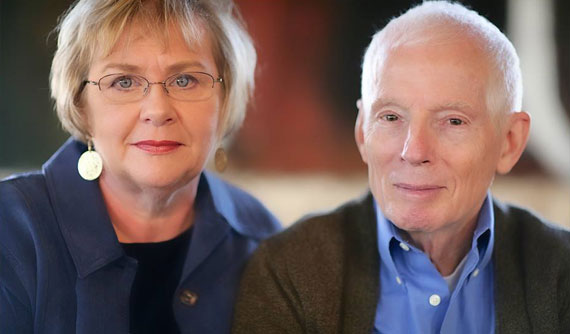
Dad gave up driving after a fender bender made it clear that it was no longer a good idea to be on the road. This changed my parents’ independence significantly.
He fought the disease progression every step of the way. Dad still went on walks, but eventually had to shorten them, as walking became more difficult. He continued to visit the gym daily and was followed around by Mom so that he would not fall on the equipment.
Dad got to a point where he was in so much pain and experiencing such a constant state of wooziness, that he stopped wanting to go anywhere. When we did manage to get him to go somewhere, he never wanted to stay long.
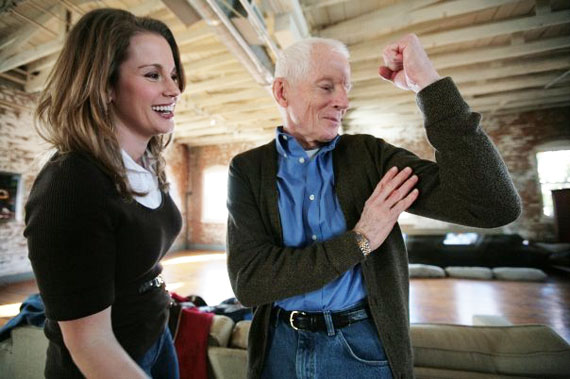
As his PSP progressed, all of the tasks and responsibilities Dad enjoyed began to be delegated. I will never forget the day that he passed the torch on saying the prayer at our family meal. He said that his speech was too slurred and he just couldn’t do it anymore. It was hard to accept these changes as they happened one by one, but in retrospect, we were mourning the loss of who he was to our family, little bits at a time.
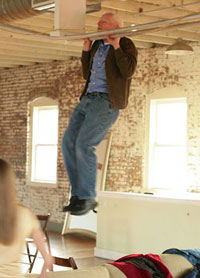 Mom has always taken great care of our family over the years. The demand on her increased exponentially, as Dad’s disease progressed. This drained her mentally and physically. My sister and I helped out as much as we could by coming over to hang out with Dad, so that she could step away for a few hours. That time spent hanging out with Dad is something that I will cherish forever. Because his eyesight had become so poor, we decided to start reading to him. This was a wonderful intimate activity to share together and kept him engaged by reading stories that sparked his interest.
Mom has always taken great care of our family over the years. The demand on her increased exponentially, as Dad’s disease progressed. This drained her mentally and physically. My sister and I helped out as much as we could by coming over to hang out with Dad, so that she could step away for a few hours. That time spent hanging out with Dad is something that I will cherish forever. Because his eyesight had become so poor, we decided to start reading to him. This was a wonderful intimate activity to share together and kept him engaged by reading stories that sparked his interest.
When we were at one of his neurologist visits, we requested some help in the home. After that, he began receiving home health visits that included a regular nurse visit and an aide to bathe him, as well as physical therapy and speech therapy sessions. Dad enjoyed the visitors and both the physical therapist and speech therapist were able to give us good tips on managing his care.
Not long after the home health providers were engaged, they suggested that he begin hospice care. This was a difficult decision because it meant that he would no longer see the neurologist that he was accustomed to visiting. It also had a strange “I give up” feeling to it. Let me tell you, it was awesome when they began to help. Everything from the hospital bed to the medication (comfort meds) management to the in-home provider visits – it all made things so much easier for everyone.
Someone providing care to a patient with a progressive disease has to be really nimble – something that worked yesterday might not work tomorrow. We had to be careful to not beat ourselves up for sometimes being a step behind. There came a time when we had to secure the house because Dad was having hallucinations that would cause him to go outside or take the car out. It seems that, as soon as we figured out how to keep him safe inside, he no longer needed it because the hallucinations stopped and he became far less mobile. We constantly needed to change his diet, due to his difficulty with swallowing.
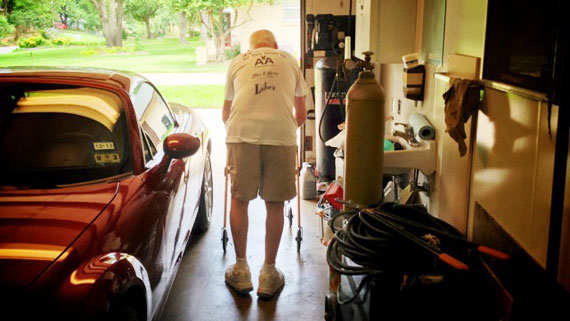
Our biggest struggle continued to be making sure that Mom was getting enough rest and was able to take care of herself. She gave up everything for Dad during that time and was his angel. All the while, she was losing her lifelong companion who slipped further away from her with every passing day.
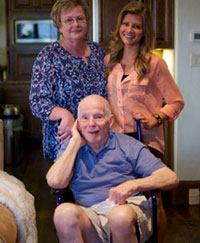 Dad’s condition continued to decline, due to his inability to take in enough nutrients. He began going to bed around three in the afternoon and waking up many times in the night. Once he was bedridden, his rate of decline escalated. His nurses did a good job of setting our expectations on how much time he had left, when we would ask. If our family could go back in time, we would have been more liberal with his comfort medications during this time. We would have asked the nursing staff how to better assess his comfort needs based upon non-verbal signs. We were trying too hard to get him to tell us what he needed and we didn’t know how to do it better.
Dad’s condition continued to decline, due to his inability to take in enough nutrients. He began going to bed around three in the afternoon and waking up many times in the night. Once he was bedridden, his rate of decline escalated. His nurses did a good job of setting our expectations on how much time he had left, when we would ask. If our family could go back in time, we would have been more liberal with his comfort medications during this time. We would have asked the nursing staff how to better assess his comfort needs based upon non-verbal signs. We were trying too hard to get him to tell us what he needed and we didn’t know how to do it better.
Once his passing became imminent, the hospice nurses were staying around the clock. They gave us the ability to just spend time with him instead of being his caregivers. It was such a weight lifted from our shoulders. We continued to read to him and play music for him, even after he became non-responsive. Every day that he was still with us, the nurse marveled at the strength of his heart and lungs. He was still being a role model as he lay non-responsive in bed by motivating his new around-the-clock caregivers to stay fit!
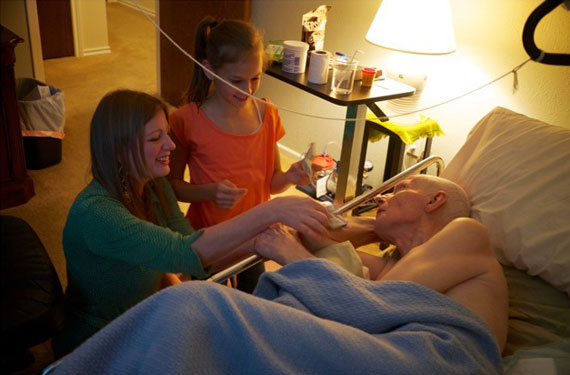
What did we learn through our journey with Dad?
1. If there is something that you want to do in life, do it. Don’t wait.
2. Stay healthy and fit. A strong body will conquer better than a weak one any day.
3. Be aware of the services that are available to you. The moment that you think that you or your loved one could benefit from them, ask to receive. Do not delay thinking that service is for someone else. Don’t think that it’s not bad enough yet. It probably is bad enough and you need help!
4. Attend a local PSP support group.
5. Be a nimble caregiver. Every day is different, so keep an open mind to change. When what worked yesterday no longer does, don’t beat yourself up. It is time to figure out what works today.
Seventeen years before his death, Dad had decided that he would donate his body to medical science. He had hopes that something would be learned from the donation. He used to say that the doctors would look at his body and exclaim, “Wow, look how they did it back then.” He was referring to various surgeries that he had over the years. Instead the doctors probably said, “Wow, this fellow had PSP!”
Be confident that there are many more people out there than just my Dad who are trying to make a difference. They are working furiously to raise awareness, develop treatments and eventually find a cure.
